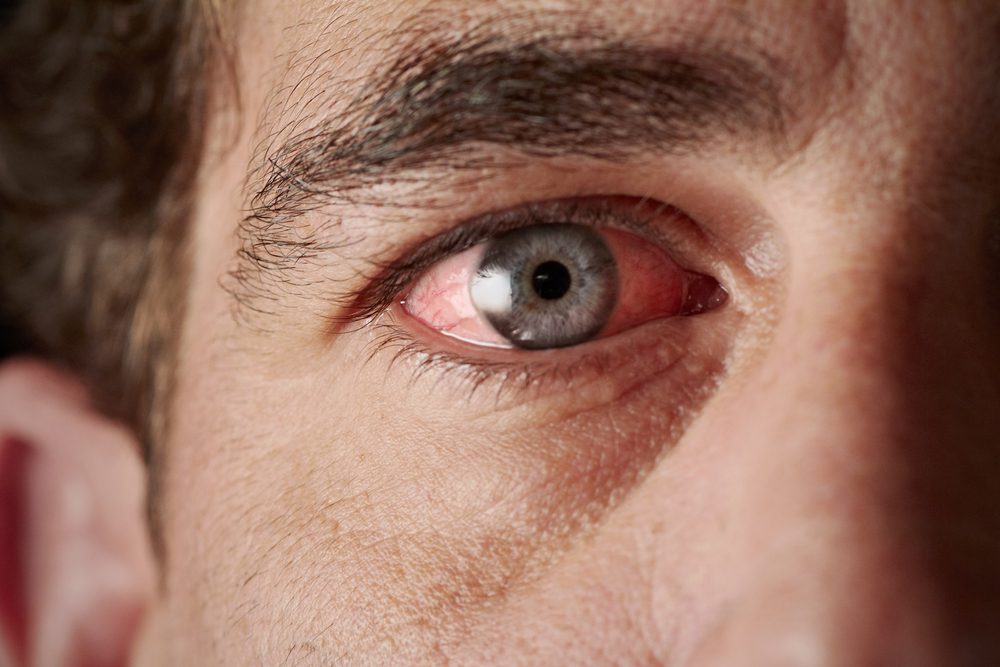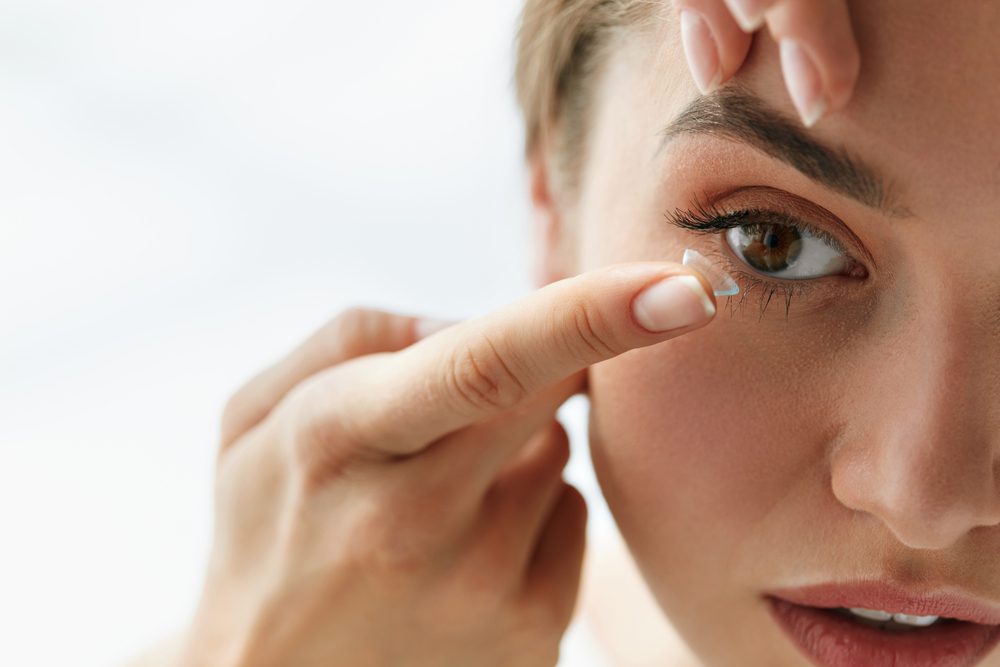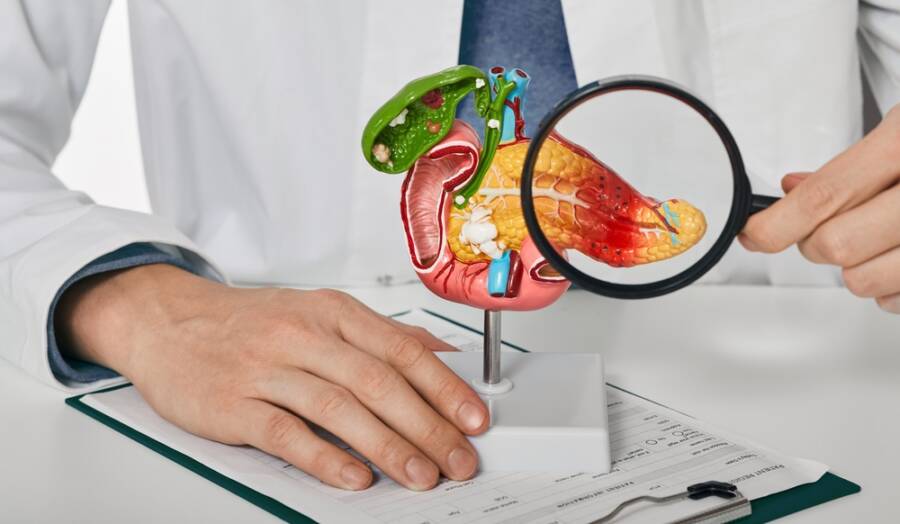Dry eyes? Pain after watching TV or scrolling on your phone? Occasional blurry vision?
We all experience these symptoms at some point even if our vision is perfectly healthy.
However, recent studies from the National Institutes of Health reveal that over 6% of our country’s adult population is visually impaired. Millions of other people are struggling with undiagnosed vision problems they may never get solved.
Doctors worldwide are raising an important alarm: we should NEVER ignore eye symptoms regardless of how meaningless they may seem.
Many conditions can be prevented or treated if we just track them on time with a specialist – including age-related illnesses like glaucoma, dry eyes or macular degeneration.
Today, experts will reveal 9 serious eye symptoms that should always send us to the doctor. Ready?

#1: Flashing lights or shadows
If you start ‘seeing stars’ right after getting up, that’s perfectly normal. However, if you constantly notice flashing lights or an unexplained shadow in your peripheral vision, it’s time to call your doctor.
No matter how rarely these signs may show up, they’re usually caused by a detachment of your retina, a nerve located in the back of your eye.
Retinal detachment is not a disease per se, but rather a symptom of a more serious condition like glaucoma or nearsightedness.
Thankfully, though, this detachment of the retina can be easily corrected via surgery if you detect it on time.
ATTENTION! Retinal detachment is a serious symptom; unless you alert your doctor as quickly as you notice the first signs, it can lead to blindness.
#2: Eye pain
Spending hours staring into the screen of your TV or smartphone can cause eye pain, especially if you’re doing it after it gets dark. Eye pain can also be caused by sudden exposure to light (such as going out in the sunlight) or reading for several hours at a time.
Many age-related eye conditions might not cause any pain, but you should let your doctor know as soon as you experience this symptom for no evident reason.
According to Richard Shurgarman, MD and ophthalmologist in West Palm Beach, Florida, people may sometimes experience eye pain due to dry eye, glaucoma, scratched cornea and even cancer.

#3: Constant discomfort of the eyes
Some eye illnesses might not show any specific symptoms like pain or temporary vision loss.
Sometimes, it may be just a general discomfort similar to that of having ‘something in your eye.’ Most people ignore these signs especially if they come and go, but in fact they can also hide a serious condition.
If your eyes feel irritated or itchy constantly, you should get checked out just to eliminate serious conditions and get the treatment you need if necessary.
Sometimes, there may literally be something in your eye. Although it doesn’t seem serious, you shouldn’t wait for days to let your doctor know, as some particles can evolve into serious infections that require immediate medical assistance.
#4: Red eye
Dr. Shurgarman points out that ‘having two red eyes is probably not as serious as one red eye.’ Why?
Well, because if both of your eyes get a reddish hue simultaneously, it might be due to minor causes like the common cold or spending too much time outside when it’s windy.
Sometimes, red eyes can also be caused by pink eye. Medically called conjunctivitis, this minor infection can go away on its own or with a simple treatment made of eye drops applied daily.
However, if only one of your eyes suddenly turns red, you might be dealing with a serious inflammation. The most common ones are:
- Uveitis occurs when the middle coating of your eyeball (a protective layer of the eye) starts swelling;
- Scleritis is the inflammation of the outer protective layer of your eyeball.
Both conditions require professional assistance to establish the exact cause and treatment.
#5: Blurred vision
Most people experience blurred vision at some point due to various reasons: watching too much TV, working late hours or simply being extremely tired. Sometimes, even panic attacks can have blurred vision as a symptom.
However, constant, unexplained blurred vision can signal many serious eye conditions including uveitis, torn retina and glaucoma. The risk of such problems increases with age, so if you’re over 50, you should let your doctor know as soon as possible.
Dr. Shugarman warns that ‘vision loss, especially in one eye, can be a sign that the carotid artery, which is a major supplier of blood to the eyes, is blocked.’
ATTENTION! If you suddenly experience blurred vision in a single eye, it might be an early sign of stroke, so make sure to call your doctor as soon as possible.
#6: Eye injuries
If your toddler pokes you in the eye for fun, it might not seem like anything serious.
Many times, we ignore eye injuries just like any other body part that gets harmed; however, the human eye is the most sensitive organ – and one of the most exposed ones too.
Specialists advise everyone to get a checkup immediately if they notice pain or redness that lasts for more than 20 minutes post-injury.
Some injuries may be far more serious than we realize and they might need immediate assistance or treatment. If left untreated, certain cases can lead to dangerous infections that can permanently affect your vision.
#7: Sudden vision loss (in a single eye)
It should be obvious that if you can’t see with one eye you should get a checkup.
Sudden loss of vision (especially if it’s in a single eye) can often be caused by age-related macular degeneration (AMD). Sadly, AMD is one of the leading causes of vision loss in people older than 65 in our country.
Note that many times vision loss occurs gradually. It may start as a seemingly harmless blurred vision.
In some cases, though, AMD-caused vision loss can happen unexpectedly; this is usually caused by an eye fluid (or blood) leakage right under the retina, which blocks the nerve cells responsible for vision.
Sudden vision loss can also be brought by a rare type of glaucoma. In this case, large amounts of fluid accumulate in your eye, which can damage the optic nerve permanently.

#8: Eye discomfort (with contact lenses)
If you’re wearing contact lenses for the very first time, you might experience a strange sensation. The same can be said if they’re misplaced or if there’s something in your eye.
However, experiencing eye discomfort for no apparent reason can be a sign of infection. The likelihood further increases if you don’t follow the rules recommended by the contact lenses manufacturer.
If you’re planning to change your contact lenses or experience any type of discomfort, always get a medical checkup first. A surprising amount of people is trying out contact lenses without a doctor’s recommendation, which can cause permanent eye damage.
#9: Strange symptoms post-surgery
Most of today’s eye surgeries are 100% safe and they’ve actually become routine for many doctors. It’s very common that you experience some discomfort after surgery, including dry eyes or local pain.
However, if the pain intensifies or you’re suddenly noticing side effects that your doctor didn’t mention, it’s definitely time to get a checkup. Even though your doctor may have confirmed that the surgery went well, you should still rule out any potential complications.
This rule of thumb applies even if you have symptoms that come and go, as you may still be secretly experiencing an infection or something more serious.
How can I keep my eyes healthy?
This is one of the most common questions we get regarding vision.
While it’s true that some age-related eye conditions can’t be prevented, there’s still plenty we can do to keep our vision as healthy as possible in the long run. Like all other health aspects, this one starts with small lifestyle changes.
Our diet can have a major positive impact on our health; here are the most beneficial foods for your vision:
- Carrots
- Spinach
- Citrus
- Red bell pepper
- Zucchini
Researchers confirm that vitamin B1 is also essential for healthy vision, so taking a natural supplement rich in this micronutrient might also help. However, make sure to contact your doctor before starting any treatment.
Getting an annual checkup with your eye doctor is equally important to rule out any potential hidden problems.
Other helpful resources
Keeping your eyes healthy should be a top priority especially after 50. However, many of us are still overlooking important aspects such as addressing strange symptoms right away to treating fine lines that come with age.
As a plus, there’s so much misinformation online these days that we can’t even tell which products are truly beneficial, right?
Here at Indulging Health, we dedicate our time and resources to deliver expert-verified information only. Why? Because we want you to live healthier in simple, affordable ways!
With that being said, I’ll leave one of our top resources for a healthier lifestyle below: 10 Healthy Habits We Can Borrow From Olympic Athletes













